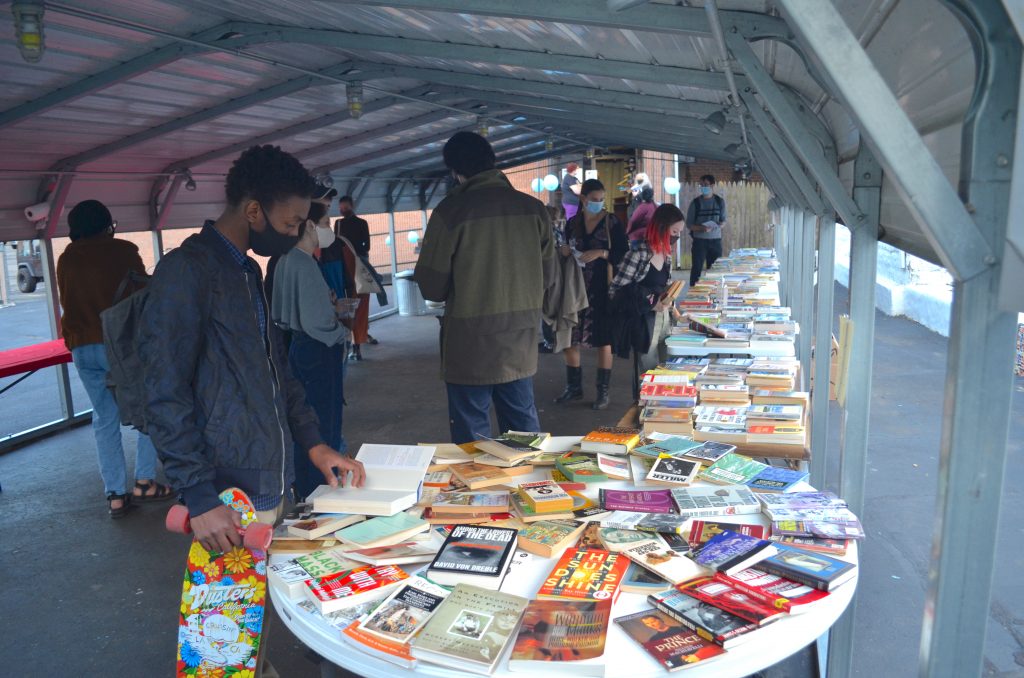A local Binghamton organization recently opened a bookstore called Riot Act, located at the Carriage House Annex at the Bundy Museum of History and Art on 129 Main St. The bookstore was created in hopes of sparking political and social change and bringing more knowledge to the community by offering a safe space for people to learn.
“The main goal of Riot Act is to act as a base for learning freedom, a plug for community and political action, mutual aid and skill-sharing,” the Riot Act staff wrote collectively. “We see ourselves as a contagious agent, a carrier of spores of radical thought, history, art and agitation.”
The Riot Act bookstore is unique in that it is an “anti-profit” store, which strays from how most businesses are run. This means that all the staff are volunteers and all funds go right back into the store to buy books, promote creative works and fund activism. The founders of the bookstore work collectively to run it, purchase materials and make decisions altogether. The shelves are stocked with books that are written by individuals who have been negatively impacted by institutions such as capitalism and white supremacy. The hope is to create a spark within the reader and for political change to follow suit, something that mainstream bookstores do not always offer.
“We don’t have paid staff and we’re using all proceeds from sales to fight for a world that values people, not money,” the Riot Act staff wrote. “We do this mainly by spreading the works and creations of people that capitalism, white supremacy and empire has tried to destroy or submit.”
Books like “Take Back the Land” by Max Rameau, “Rosa Parks: My Story” by Rosa Parks and “Sisters of the Revolution” by Ann and Jeff VanderMeer are available for purchase. The titles stray from what the typical chain bookstore has to offer. This makes it so that the reader is able to obtain unique works that are not what mainstream stores push out. Along with supplying the community with literature on political activism, Riot Act uses funds from the sale of it to support individuals and other organizations.
“While the sale of radical literature seems an odd way of doing that, we simply use the cash we get to purchase more books, art, creative ordnance and destructive supplies, to support people, fund workshops, show movies, give people food and keep the space going,” the Riot Act staff wrote.
The Riot Act staff acknowledges that the bookstore is located on unceded Onondaga territory and stocks their shelves with materials to spread awareness about the Onondaga Nation’s land rights actions. The bookstore itself also works symbolically as a political activist, meaning that it houses works that spark political change and is a safe space to grow and learn. The Riot Act bookstore has a reparations fund for Black individuals and Indigenous peoples to shop free of cost so that they can continue to feel heard and respected.
If you are interested in purchasing materials from the Riot Act, keep in mind that during the COVID-19 pandemic, they are only allowing one individual or a small quarantine cohort to shop at a time.



